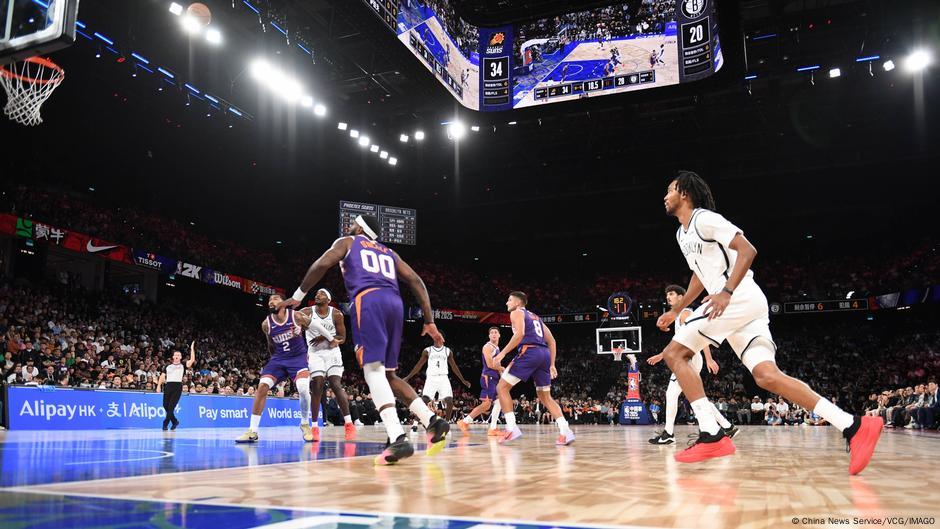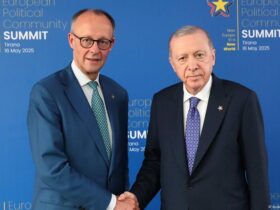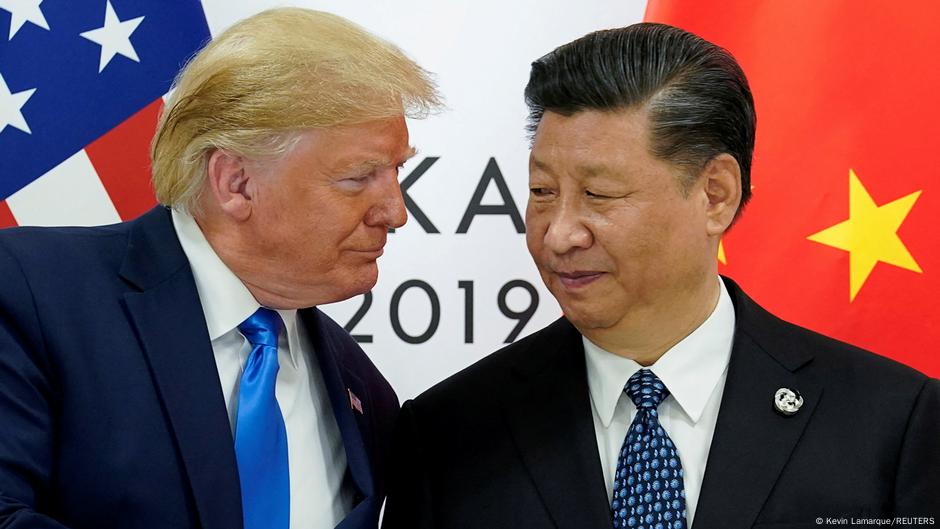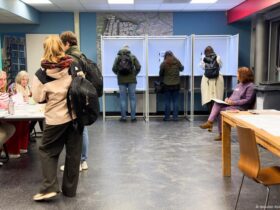When US President Donald Trump and his Chinese counterpart Xi Jinping meet in South Korea on Thursday, perhaps they may find common ground and inspiration in basketball.
In early October, two NBA teams, the Brooklyn Nets and the Phoenix Suns, played pre-season games in Macau, an exclusive territory of China, despite the ongoing trade war between the world’s two largest economies. This summer, with the league returning to the country, some NBA players also visited China, including LeBron James and Steph Curry.
The NBA, the sport’s biggest competition by far, has been locked out of its biggest overseas market since 2019, but relations appear to be thawing.
Social media promotes division
In 2019, Houston Rockets general manager Daryl Morey posted an image on social media with the slogan “Fight for freedom, stand with Hong Kong”, at the height of pro-democracy protests in the former British colony.
The NBA said the comments were “regrettable” but the reaction in China, home to an estimated 450 million basketball fans, was swift and severe. Broadcasters refused to show the league, sponsors canceled deals and there were no further exhibition games in the country. In 2022, NBA Commissioner Adam Silver estimated that the league lost millions of dollars in revenue due to the boycott.
Now, however, the NBA is back and while Macau is not the mainland, the games were seen as such a success and the enthusiastic crowds seen in cities like Beijing, Shanghai and Guangzhou don’t seem too far away.
“The NBA has been very cautious and thoughtful in its re-entry into China, and the recent games in Macau were a good example of that,” Mark Dreyer, author of “Sporting Superpowers,” a book on China’s sports ambitions, told DW.
“They were well received, so while the events of 2019 were certainly more than a shock, I think the league is on a solid path to rebuilding trust.”
a shared love of hoops
It helps that basketball remains popular in China. The country may have struggled to become a major power in soccer, but in its sprawling cities, you’re more likely to see kids throwing some hoops than kicking a ball.
It also helps that the country has produced genuine superstars in basketball. Shanghai’s Yao Ming played for Houston from 2002 to 2011 and made the All-Star team in all eight of his seasons. In June, Yang Hansen was drafted by the Portland Trail Blazers.
“Basketball had a very deep base in China early on, and the fans have been very loyal to the game,” Dreyer said. “I have not seen any major decline in participation or interest, especially since the games resumed broadcasting after the temporary suspension.”
Fans are happy that the competition is back.
“If you love basketball you love the NBA, and I know most people still found a way to watch games,” said Shanghai-based fan Zhang Wei, who hopes there will be no repeat of the boycott.
“What happened is regrettable, but players and officials should focus on the game and not get involved in anything outside of that.”
walking on eggshells
However, this will always be a risk. That the NBA’s popularity seems to have been relatively unaffected by the boycott will be welcome news to league officials, but no one can be certain that it will not recur.
However, both parties would be keen to avoid such a situation. Dreier believes it is unlikely that everyone involved now knows the financial consequences of upsetting Beijing. Others are less convinced.
“I would say there is a high risk of making a serious PR mistake in the future,” Bob Picard, former global communications chief at the Beijing-based Asian Infrastructure Investment Bank, told DW.
Furthermore, Picard believes that a system should be put in place to reduce the possibility. “This includes things like crisis preparedness and incident response exercises, China cultural sensitivity training, media coaching and a disciplined communications management system.”
NBA officials have said China does not impose any conditions on what officials and players may say, but Pickard believes Beijing is unlikely to ignore comments that are considered critical.
Picard said, “China has not yet learned the lesson that overly thin sensitivities and acerbic communication styles help create PR disasters rather than prevent them.” He also said it “fosters a climate of fear, where people are so afraid of making mistakes on China that they take risks.”
political relations
That has not been the Trump administration’s approach when dealing with Beijing, which has imposed heavy tariffs on the Asian nation. It is difficult to predict what basketball players or officials may say on social media. President Trump’s actions are even more difficult to predict.
The current political situation creates challenges for any American industry operating in China.
“It essentially fits into that broader context, but I would say the NBA is relatively untouched compared to most industries,” Dreyer said. “The NBA is not a commercial commodity but rather provides direct entertainment and inspiration to Chinese audiences.”
This situation could help if relations between Beijing and Washington cool further.
“It will definitely create a more challenging environment for the league,” Dreyer said. “But with its global appeal and positive cultural impact, the NBA could actually help build goodwill between the U.S. and China, even if political relations remain strained. In this sense, basketball is one of the few areas where people on both sides can still connect in a positive way.”
Edited by: Jonathan Harding






Leave a Reply